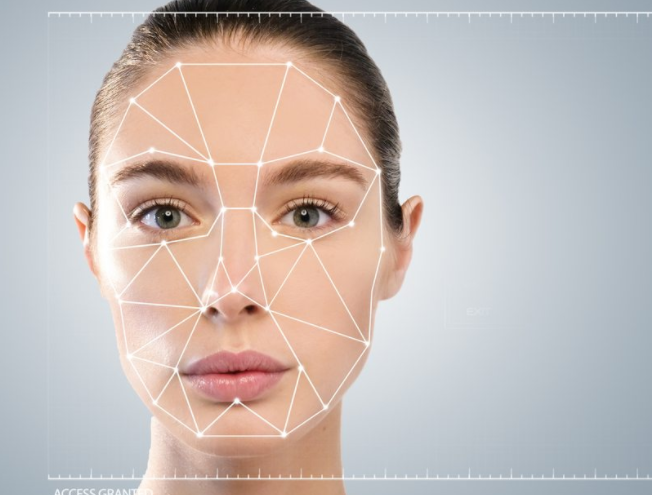We are constantly recognizing faces countless times a day, and most of us take it for granted.
我们每天都在不断地辨认无数张脸,大多数人都认为理所当然。
Of course your best friend looks different from your mom, who looks different from Beyoncé.
当然,你最好的朋友看起来和你的妈妈不一样,而你的妈妈看起来和碧昂斯不一样。
But if you think about it, every face is pretty similar.
但如果你仔细想想,你会感觉每张脸都很相似。
Most of them have two eyes, a nose, and a mouth, and only vary just a little bit in shape, and color.
大多数人都有两只眼睛,一个鼻子和一个嘴巴,只是在形状和颜色上略有不同。
So, really, distinguishing faces in a crowd should be as difficult as distinguishing birds in a flock or bricks in a wall.
所以,实际上,在人群中辨别面孔就像在鸟群中辨别鸟类或在墙上辨别砖块一样困难。
Luckily, you know because otherwise we'd be terrible at all interactions, humans are exceptional at perceiving faces.
幸运的是,本来我们人类在所有的互动中都很糟糕,但在感知面孔方面非常特殊
Part of the reason for this is a specialized brain region called the fusiform face area, or FFA.
部分原因是因为一种特殊的大脑区域,我们称之为纺锤状脸部区域,或FFA。
The FFA is tiny and located in the brain's temporal cortex, which is generally responsible for object recognition.
FFA很小,位于大脑的颞叶皮层,通常负责识别物体。
Since faces are special, they get their own private real estate there.
由于面孔的特殊性,FFA拥有自己的私人物产。
We think that the FFA is face-specific because we can observe how the brain responds to faces compared to other objects.
我们认为FFA是专门针对面部的,因为我们可以观察到大脑对其他物体和面部的反应。
In fMRI experiments, which measure brain activity during specific tasks,
功能磁共振成像是测量特定任务期间的大脑活动,
the FFA is active when looking at faces— whether they're real people, photographs, or even drawings.
观察人脸时,无论是真人、照片,还是素描,FFA很活跃。
But other objects, like a cup of coffee or a building, activate other parts of the temporal cortex. Not the FFA.
但其它物体,比如一杯咖啡或一栋建筑,会激活颞叶皮层的其它部分,而没有激活FFA。
However, scientists are still debating if the FFA is actually specific to faces, or if it's just really good at identifying complex objects we see a lot.
然而,科学家们仍在争论FFA到底是专门针对人脸,还是仅仅擅长于识别我们经常看到的复杂物体。
Some researchers argue that if someone saw more birds than human faces, for example, their FFA might specialize for birds.
例如,一些研究人员认为,如果有人看到的鸟类比人的脸多,他们的FFA可能专门针对鸟类。
And they might be better at picking out a bird from a flock than a face from a crowd.
他们可能更善于从鸟群中辨认鸟,而不是从人群中辨认脸。
But we're still looking into these questions.
但我们仍在研究这些问题。
So how does this brain region help you process the world around you?
那么大脑区域是如何帮助你处理你周围世界的呢?
Essentially, we see most objects as a collection of features.
从本质上讲,我们将大多数对象视为特征的集合。
Like, we'll see something with a screen, buttons, and ports, then put all that information together to recognize it as a cell phone.
比如,我们会看到一些带有屏幕、按钮和端口的东西,然后把所有信息放在一起来识别,像手机一样。
But we process faces more holistically.
但我们在观察面部时会更全面。
We know how facial features are usually arranged in relation to one another, and can see them all at once as part of a face.
我们了解面部特征通常是如何相互联系,并且把它们都看成是面部的一部分。

In fact, we might be a little too good at recognizing faces, which leads to a phenomenon called pareidolia.
事实上,我们可能太擅长人脸识别了,这就导致了一种空想性错视的现象。
You might have seen pictures of faucets, or rocks, or even toast where you can't help but see a goofy little face in there,
你可能看到过水龙头,石头,甚至是烤面包的照片,你会不由自主看到一张傻傻的小脸,
even though you know that it isn't intentionally there.
即使你知道这些小脸不是故意出现的。
The layout of features is really important because the FFA only responds to faces in their normal arrangement and orientation.
特征的布局非常重要,因为FFA只对面部正常的排列和位置作出反应。
When one is upside down, you might know it's a face, but your brain doesn't treat it like one.
当一个人倒过来的时候,你可能知道那是一张脸,但你的大脑并不把它当成是脸。
Take the Thatcher Illusion, named after Margaret Thatcher, whose face was originally used to demonstrate this phenomenon.
以撒切尔错觉为例(以玛格丽特·撒切尔命名)最初撒切尔的脸被用来证明这种现象。
If you take a picture of someone's face and flip everything upside down except for the eyes and mouth,
如果你给某人的脸部拍照,把所有东西倒过来,除了眼睛和嘴巴,
it doesn't look that different from a normal upside-down face.
它看起来和普通的上下颠倒的脸没什么区别。
That's because your brain's not viewing it as a face.
那是因为你的大脑没有把它当成是脸。
It's just a collection of features, and every feature on its own looks pretty normal.
只是把它当作特征的集合,每个特征看起来都很正常。
But if you flip that image over, so the eyes and mouth are upside-down while the rest of the face is upright, it becomes terrifying.
但如果你把这张图片翻转过来,眼睛和嘴巴就会倒过来,而脸的其余部分是直立的,这就可怕了
Your brain recognizes it as a face, and realizes that something is very wrong overall.
你的大脑把它当成是脸,意识到总体上有些东西是错的。
For some of you, though, face identification might actually not be any easier than telling birds apart.
然而,对你们中的一些人来说,面部识别可能并不比区分鸟类更容易。
Or you might not see random faces on inanimate objects.
或者你可能在无生命的物体上看不到随机的面孔。
Estimates have found that about 1-2.5% of the world's population have a condition called prosopagnosia, or face blindness.
据估计,全世界约有1-2.5%的人患有人面失认症,或称脸盲症。
To them, faces aren't special and are processed like any other object.
对他们来说,人脸并不特殊,处理起来和其它物体一样。
This can be the result of a brain injury like a traumatic head injury or stroke that affects the FFA.
这可能是因为大脑损伤,比如创伤性头痛或中风影响了FFA功能。
Others have congenital prosopagnosia.
其他人有先天性面孔失认症。
As babies, they don't develop normal face recognition abilities.
婴儿时期,人们还不具备正常的面部识别能力。
Based on current research, this condition is likely hereditary and also involves the FFA, but scientists are still looking into that.
根据目前的研究,这种情况可能是遗传的,也涉及FFA,但科学家仍在研究。
Fortunately, most people with prosopagnosia can still recognize their friends and family.
幸运的是,大多数人面失认症患者仍然能够认出他们的朋友和家人。
They just have to work harder at it.
他们只需要更加努力。
For instance, they often actively memorize distinct features about friends, like that Bonnie has long pink hair.
例如,他们经常积极地记住朋友的不同特征,比如邦妮有一头粉红色的长发。
So if Bonnie gets a haircut, they'll have trouble recognizing her.
所以如果邦妮剪了头发,他们就很难认出了。
Many of these people never even realize that they have prosopagnosia, or that they see faces differently from everyone else.
这些人中的许多人甚至没有意识到他们患有人面失认症,或者他们看到的面孔和其他人不一样。
They might just assume they're “bad at faces” and write it off.
他们可能只是认为自己“不擅长认脸”,然后就没有放在心上。
So human faces are an interesting paradox.
所以人脸是一个有趣的悖论。
They're all quite similar, but subtle differences make them super unique,
它们都很相似,但因细微的差别而独一无二,
and our magnificent brains make them surprisingly easy to recognize.
我们非凡的大脑使这些认脸识别起来非常容易。
The most advanced computers still have difficulty recognizing faces, but our brains make this complicated thing seem very easy!
最先进的计算机仍难以识别人脸,但是我们的大脑让这个复杂的事情看起来很简单!
Thanks, brain.
谢谢我们的大脑。
And thank you for watching this episode of SciShow Psych, with a special thanks going out to our patrons on Patreon, who make these videos possible.
感谢收看本集心理科学秀节目,特别感谢Patreon对本节目视频的支持。
If you want to help support our team and free psychology education online,
如果您想帮助支持我们的团队和免费在线心理教育,
you can go to patreon.com/scishow.


